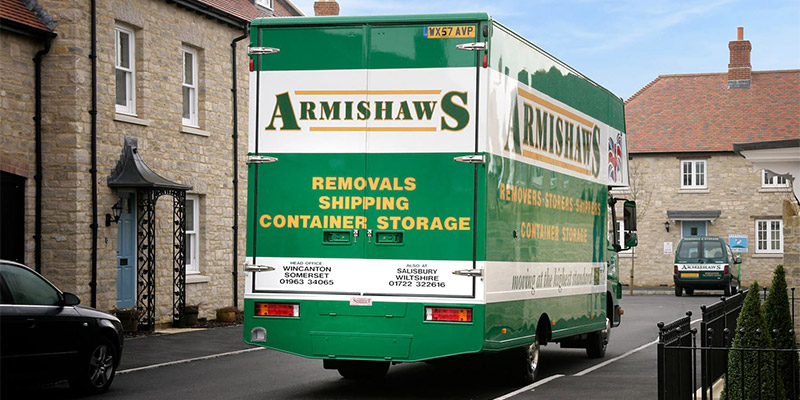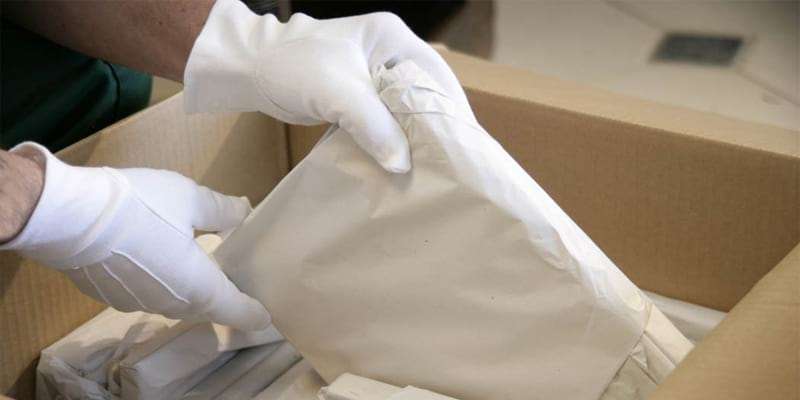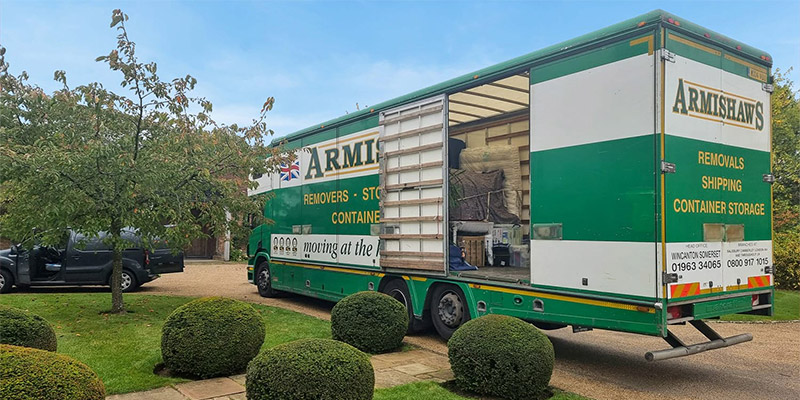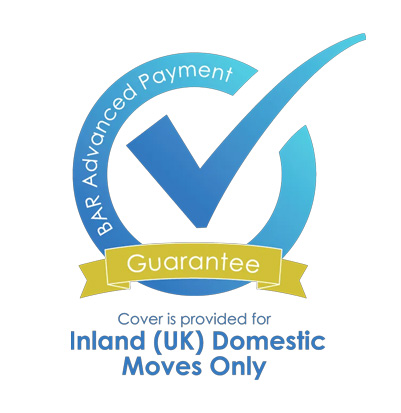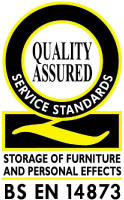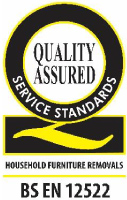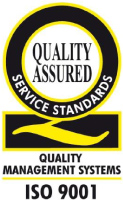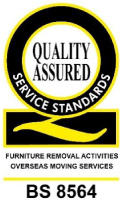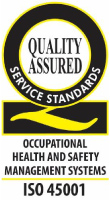12 Essential Tips For France Removals
Moving house can be stressful, moving to an entirely new country is even more so! Here are industry experts lift the lid on Moving to France and give you a rundown of what you should do to prepare for your removal.
How much does it cost to move to France?
How long is a piece of packing string? There are a number of variables which will affect the price; The distance you’re moving (it’s nearly 1,000 from the northern most tip to south coast of France), size of property, total volume of items being moved. Even factors such as the time of year and type of services required (packing, storage, etc) will determine the price. We always advise getting multiple quotes.

Do I need a specialist company?
Your removals company will need an ECMT International Removals Permit to be allowed to transport your possession to France. An experienced company will already have a series of port agents in place who will help deal with aspects of your move. In most cases you won’t even see or even need to know much about the agents, but they’re vital to make the process happen.
Overseas moves are trickier, so make sure you use an experienced company, not only can they guide you, but a good company will get things done and take away the worries for you.


What paperwork do I need for my France removal?
You will need a visa and if working, you’re require a work permit prior to your move. There is a very handy, easy to use Visa Wizard on the French government website that covers everything from the price and documents required for a visa.
In general, the documents you’re most likely to need are:
- A valid passport (with at least 3 months left before expiry)
- Passport photos (for new documents)
- Proof of health insurance
- Financial proof of being self-sufficient/employed
- Work permit
- Certificates of degrees & qualifications
- Marriage certificate
- Birth certificate (children)
For your items in transport, you’ll also need;
- A full inventory and values (legally it is required in French) of your
- Signed “bon de non cession” – French customs form
- Proof of residence in France (lease document or utility bill)

What paperwork do I need for my pets?
Pets from Britain are not required to stay in quarantine but you must provide proof of the following for your furry friends;
- Microchip (21 days prior to your move)
- Rabies vaccination
- Pet passport
- Tapeworm treatment (dogs only)

Do I need to register for tax?
There are two certainties in life, paying tax and licking your lips while eating a jam doughnut. IN France you’ll need to complete a 2043 form (available online) which then needs to be returned to the local tax office, Service des Impôts des Particuliers. This need to be done before you start working, your employer might be able to assist.
You also need to remove the hooks of the British taxman. You might be required to fill out a P85 form as a declaration that you are no longer a UK resident. If you’re keeping property or savings in the UK you must fill out a R105 to pass on to banks or institutions responsible for overseeing your interests.
You can find further information at the .Gov website; https://www.gov.uk/tax-right-retire-abroad-return-to-uk

Do we need health insurance?
France has an excellent health system and infrastructure. This is jointly funded by the government and patient contributions. As a resident you must have health insurance and should be aware that some treatments have to be paid for in advance. You can apply for your family to be covered by the French healthcare system, ‘PUMa’ (Protection Universelle Maladie) after 3 months living in France. There are full details available on the .Gov website; Applying for French Healthcare

Can I use my driving license?
You can use your British driving license for up to 12 months. After that you will need to take a test to gain a French driving license (having the wrong license will invalidate your insurance).

Can I take my car?
Yes. If you are living in France your vehicle must be formally registered plated with a French registration number. For this you will need;
- Certificat de Conformité/Attestation d’identification (equivalent of the UK MOT)
- A tax certificate
- Proof of ownership of the vehicle
All cars in France are legally required to carry;
- A warning triangle
- Hi-visibility vests for each occupant of the car
Also, it’s illegal to drive a car in France with any missing lightbulbs so it’s advisable to carry spares.

Can I take my plants?
No, as a non-EU country it is not possible to transfer plants from your British garden to your French garden. The general rule is anything requiring soil (including the soil itself) will not be permitted entry. Cuttings, seeds, cuts plants are permitted but must be presented at customs.

Do I need insurance for my possessions in transport?
Yes, we’d always advise you have your own insurance. A good removals company will have some cover but these are your worldly goods, so it really is best to put your own insurance in place to cover any eventuality.
Booking your removal with a member of the BAR (British Association of Removers) also gives you greater financial protection.

Ready to start planning your move? Get a free quote.
Beware of travel restrictions
Trucks over 7.5 tonnes are not allowed to operate on French roads at the weekend. Trucks cannot travel on motorways between 10pm Saturday and 10pm Sunday. There are also restrictions on goods vehicles during July and August (holiday season). However, despite the restrictions our experienced teams have the know how to keep your move on track and on time.

What should I look for in my France removals company?
The right removals company will make all the difference between a leisurely drive to France knowing your move in is safe hands, and a nerve-jangling, “Where’s my furniture gone?!?” period of avoidable stress and upset. The key questions to ask removers are?
- Do you have ECMT International Removals Permit?
Without this, they won’t be allowed through French customs.
- Are you a member of the British Association of Removers?
This gives you greater financial protection and ensures the company works to required standards such as customer care, packing, staff training, environmental practises, etc.
- Will I have a Removals Coordinator?
At Armishaws we provide every client with their own dedicated removals coordinator. We think it’s vital for you to have a single point of contact to work with you who understands the history and every aspect of your move from start to finish.
- Are there any extra charges?
The answer should be ‘No’. Once you have agreed all the services required, amount of goods to be moved, your Removal Surveyor should give you a complete price and outline any fees for visas, etc.

So, why move to France?
France is one of our most popular European removal destinations and after crossing the channel more times than we can remember and helping families start their life in France, we can see why! It’s famous for its slower pace of life (outside of Paris of course), but what else has France got to offer?
Summer
 Hot summer days are a major pulling point for Brits wanting to move abroad, the South of France in particular is well known for long sunny days and a calendar packed full of activities and events! Whilst the French love new-build homes, British buyers prefer the more traditional village houses, farmhouses and country houses with more character and you’ll find plenty of choice to enjoy relaxing summers where life moves at a much slower pace.
Hot summer days are a major pulling point for Brits wanting to move abroad, the South of France in particular is well known for long sunny days and a calendar packed full of activities and events! Whilst the French love new-build homes, British buyers prefer the more traditional village houses, farmhouses and country houses with more character and you’ll find plenty of choice to enjoy relaxing summers where life moves at a much slower pace.
It is good to remember that like the UK, the winters can be cold and wet, sometimes lasting long periods of time. Many people shut up their homes and businesses for the winter in search of warmer climates and a break after a busy summer so it can feel a little quiet! Make sure you stock up on good films and indoor activities for those truly cold and rainy days that are best spent inside.
Fine Dining, Fine Wines
 We cannot talk about France without talking about the cuisine. Food and drink are cherished in France and so much of the country is given over to vineyards and farming meaning that every corner you visit will have something new to try.
We cannot talk about France without talking about the cuisine. Food and drink are cherished in France and so much of the country is given over to vineyards and farming meaning that every corner you visit will have something new to try.
If you are planning your move to France you have probably thought about all the culinary delights that will be on offer right on your doorstep from warm breads and amazing cheeses to more wines than you could ever need.
In the smaller towns outside the hustle and bustle of Paris, many places are closed on Sundays and Monday mornings. Make sure you stock up on groceries Saturday or you will be relying on raiding the cupboards at meal times.
Mountains
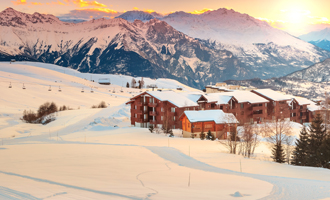 If you’re moving to France and prefer a faster pace of life, you might find yourself on the slopes of the Alps taking advantage of all these beautiful mountains have to offer.
If you’re moving to France and prefer a faster pace of life, you might find yourself on the slopes of the Alps taking advantage of all these beautiful mountains have to offer.
There is a real traditional charm to skiing in France with many of the resorts run by locals who know the area inside out. If you’re planning a move to France, the great transport links mean that it is really easy to get stuck in both on and off-piste. From the valley floor to the top of the highest ski pistes, there are some truly unbelievable sights to behold so it is well worth a visit no matter where you choose to live in France.
Diversity
 We have visited many regions in France moving the belongings of Britons looking for a new way of life and no matter what you are after, France seems to have it!
We have visited many regions in France moving the belongings of Britons looking for a new way of life and no matter what you are after, France seems to have it!
From miles of stunning coastline, beautiful countryside dotted with lush meadows and bucolic farmland, picturesque villages, charming towns full of history and beautiful chateaux to the very glamorous Cannes and Monaco to the south and of course the rolling Alps, there really is something for everyone.
If you prefer the busy and engaging life in the big city, you will probably choose Paris as your new home. However if you prefer to enjoy wandering around local markets and the draw of a friendly small-scale community, you will probably opt for a French village further in the French countryside and small towns.



